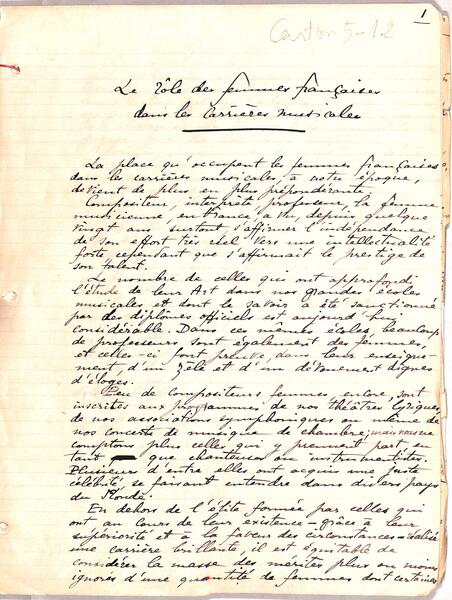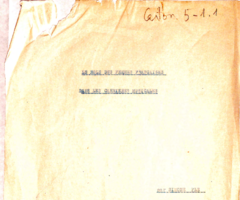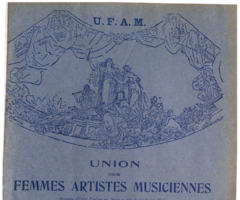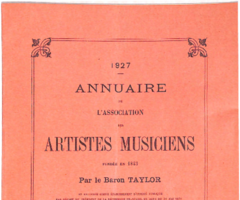Le Rôle des femmes dans les carrières musicales (Simone Plé)

In 1928 the musician Simone Plé submitted to the journalist and feminist Jane Misme 225 pages of assorted documents: manuscripts, typescripts, press cuttings, brochures, excerpts from letters, and various archival materials. Entitled Le rôle des femmes dans les carrières musicales, it was in fact a first draft of a collaborative encyclopaedia, written by Simone Plé and by the artists whose careers are documented as a testimony to “the increasingly prominent role” played by women in the musical economy. The 121 biographical entries in the work trace the careers of French women composers, singers, instrumentalists and musicographers. Simone Plé’s manuscript was a groundbreaking attempt to trace the history of women in music, in a historiographic field and a professional milieu marked by the cult of male genius. Preserved in the Bibliothèque Marguerite Durand in Paris, Le rôle des femmes dans les carrières musicales provides essential information on the career paths and life stories of women musicians in early twentieth-century France.
Documents compiled by Apolline Gouzi and Arthur Macé. Digitisation by Palazzetto Bru Zane.
At present studying for a PhD in music history at Cambridge University, Apolline Gouzi is a graduate of the Paris Conservatoire national supérieur de musique et de danse, the School for Advanced Studies in the Social Sciences (École des hautes études en sciences sociales – EHESS) and the Paris École normale supérieure (ENS). Her research focuses on the history of French music festivals after the Second World War, cultural exchanges between France and England, women composers, and the first wave of feminism in music.
Arthur Macé is a graduate of the Paris Conservatoire national supérieur de musique et de danse, where he currently coordinates research activities. His work in music history focuses on the interaction between music and politics in the nineteenth and twentieth centuries, musicians associations for men and for women, and the history of the Paris Conservatoire.
Documents and archives

Testimonial, Biographical material, Manuscript document
Le Rôle des femmes dans les carrières musicales (Simone Plé) : manuscript
Permalink
publication date : 18/12/23
Back to archives collections list



